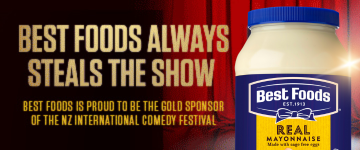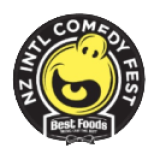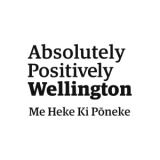25 Nov 2024
Podcasting Insights from the Digital Sandpit
If you missed the Digital Sandpit or are wanting to review some of the points that came out of the day - fear not! We've noted some key points from two of the sessions below! Podcasting Pathways: Creative Collaboration with RNZ and Podcasting Insights: Behind the Mic with Brodie Kane and Johanna Cosgrove - you can also listen to the full audio for each session, linked at the bottom. Notes from other sessions are coming soon!
Podcasting Pathways: Creative Collaboration with RNZ
RNZ’s Expression of Interest (EOI) process for podcast proposals aims to keep things simple, collecting basic details and allowing applicants to describe their idea in a few paragraphs. This ensures minimal effort for ideas that might not proceed. Applications close on November 27, after which RNZ and NZCT will shortlist 6–8 ideas for further development. Selected applicants will be invited to submit detailed proposals.
Key Considerations for Your Podcast Idea
RNZ Charter & NZ Focus
Podcast ideas should align with RNZ's Charter to foster freedom of thought, national identity, and cultural connections. While RNZ is open to diverse topics, ideas should offer a distinctive New Zealand perspective. Originality is vital—think about how your concept differs from global counterparts while highlighting Kiwi stories or viewpoints.
What Are Some Audience Trends RNZ Are Noticing?
RNZ’s radio audience skews older, while its online audience is broader and growing. This podcast initiative is aiming to target listeners under 45 to engage this underserved demographic. However, applicants of all ages are encouraged to apply.
What Are Some Successful Examples Of RNZ Podcasts And Why Are They Successfull?
Past RNZ hits include Did Titanic Sink? (Tim Batt and Carlo Ritchie) and Eating Fried Chicken in the Shower (James Nokise). These podcasts succeeded due to their compelling titles, unique concepts, and strong hosts. A standout title and an original premise can make a big impact.
Crafting a Winning Pitch
What Stands Out?
- A strong idea, even if raw, can capture RNZ’s interest.
- Clear production quality is vital—well-produced audio removes barriers for listeners.
- Unique angles and personal perspectives are encouraged. Avoid trying to mimic RNZ’s style—surprise them with your new idea instead.
How Important Is Quality?
Though early podcasts often relied on a “press record and go” approach, RNZ looks for polished, well-executed productions. Whether it’s narrative storytelling or conversational formats, the idea and its delivery must resonate with audiences.
Budget & Ownership
The pilot stage has an $85,000 budget, divided among selected projects based on their needs. Ownership discussions are flexible, but the podcast must remain free to access. Revenue models like Patreon or sponsorship aren’t compatible with this project. If an idea isn’t selected, creators retain full ownership to develop it independently.
Opportunities and Support
Working with RNZ offers access to top-tier studios, skilled engineers, and expert guidance. If your concept is selected, you'll collaborate on budget planning and production development.
This partnership between RNZ and NZCT presents a chance to create fresh, impactful content—so focus on being original, clear, and engaging!
The full audio of this session can be listened to here.
-
Behind the Mic: Podcasting Insights from Brodie Kane and Johanna Cosgrove. Key Insights.
Brodie Kane and Johanna Cosgrove shared their journeys into podcasting, offering advice and lessons learned along the way.
The Journey into Podcasting
Brodie Kane: After a mainstream media career, Brodie felt she didn’t fit the mold and saw podcasting as a way to fully express herself. “Podcasting was still in its infancy in Aotearoa, and I thought it would be a cool way to be myself.”
Johanna Cosgrove: For Johanna, lockdown inspired her podcast Rats in the Gutter with co-host Sam. “We were so delusional after days of lockdown, sitting on K Rd, cracking each other up, and thought, ‘We need a podcast!’” It became a creative outlet blending humor, intellect, and absurdity.
Common Missteps and Lessons (What are some common mistakes or misconceptions about starting a podcast that you’ve encountered or made yourself?)
Brodie: The biggest mistake? Forgetting the audience. “Ask yourself, is the listener invited to the party? Don’t get drunk on the sound of your own voice.”
Johanna: Consistency matters. Early on, breaks between episodes slowed growth. “Switching to weekly episodes made a huge difference in building and maintaining our audience.”
Finding Your Niche (With so many podcasts available, how can creators effectively find and establish a unique niche in the market?)
In a crowded market, originality and connection are key. Both agree that storytelling and chemistry matter more than fame. “If the people on the podcast love each other, the audience feels instantly invited,” says Johanna.
Brodie adds: “Growth is a grind. Don’t be disheartened by slow starts—if it’s good, people will catch on.”
Balancing Quality and Content (In your opinion, what matters more to audiences—content quality or production value? How do you balance the two?)
While authenticity is crucial, production quality can’t be ignored. “In the pandemic, Zoom-sounding podcasts were forgivable, but now studio-quality audio is essential,” says Brodie.
Johanna credits their producer, Tim Batt, for ensuring professional sound.
Managing Extras and Avoiding Burnout
For Johanna, keeping it simple is vital. “We record once a week, send footage to our editor, and post one clip. We post the full video on Patreon to cover costs.”
Brodie advises newcomers to focus on the podcast itself before adding layers like video or live events. “Start with a good podcast, then experiment with reels or TikTok to share your content.”
Final Thoughts
Both Brodie and Johanna emphasize the importance of passion, perseverance, and connection. Whether you’re starting out or scaling up, their advice is clear: be authentic, stay consistent, and invite your audience along for the ride.







